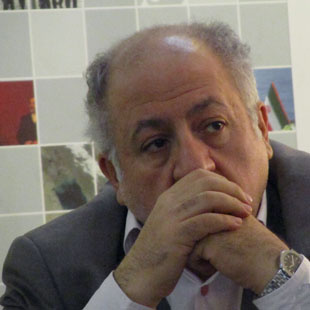Analysis of Ankara’s Dynamic Diplomacy in the Region

This trend continued with the presidency of Abdullah Gul and the appointment of Davood Oghlo as the minister of foreign affairs, and the new approaches of the Turkish statesmen towards the ME became more serious and clear; in other words, there was change in the Turkish statesmen’s strategy.
In the past, from the 1970’s to the mid-2000’s, most of the Turkish elites and statesmen dealt with the issue of the EU and their membership, as it became one of the people’s and statesmen’s basic ideals to be an EU member. On the other side, the Europeans did not have any positive viewpoint about Turkey joining the union, and this view was intensified with the dissolution of the Soviet Union and end of the bipolar world in the early 90’s. On the one hand, the Turks’ desire to join the EU and on the other hand, the Turks’ role assigned by the West became weak, since the West’s need of the Turks was not considerable anymore. Moreover, the country tried to present a secular republic with Islamic inclinations, in which there is a peaceful coexistence between Western democracy and Islam. Now, the Turks are trying to adopt a new strategy in which they play a more important role in the international arena by concentrating on ME issues, push for solutions to conflicts, and help the West in the region.
The model welcomed by Turkey in the last ten years has given the West incentive to give the Turks a more important role. Therefore, it can be claimed that Turkey now acts in a new atmosphere to regain its old role in the ME, a region that was once a part of the Ottoman Empire. By adopting new strategies against Israel, like the reaction of the prime minister at the Davos conference, supporting Palestine, sending the Freedom FLotilla and calling for the lifting of the Gaza blockade, Turkey tries to be more effective in the ME region; it is now followed, and its role intensified by the changes in Egypt, Tunis and Libya (and the country even hosted sessions on the future of Libya).
In short, the rule of national interests is the first priority in all policies. Now the country is the greatest regional actor due to their wisdom, thorough recognition of the regional international atmosphere, opportunism, comprehensive viewpoint about the issues, and the avoidance of ideological conflicts-- it follows its interests while making no conflict with those of the West.
Turkey-Iran Relations
While the Turks’ position against Israel led to the attraction of Arab public opinion, simultaneously it needed to get closer to the Islamic Republic of Iran to solve its problems and to follow its policies. The cooperation domains are as follows:
- The PKK group, which is active in the Kurdish region in Turkey, as the group diverted its activities toward Iran with US aid by forming the PJAK terrorist group.
- Nuclear issues. Due to the problems arising in the dialogue between Iran and the 5+1 group, it was felt that Turkey could play a more important role. Turks will use this opportunity to take advantage of the relations with Iran.
- Post-sanctions cooperation, as Iran naturally needs an ally to break severe sanctions.
Turkey gains the most advantage from the sanctions, while Iran is obliged to accept their cooperation to control the possibility of sanctions getting more severe day by day. Having their interests in mind, the Turks try to cooperate with Iran, creating no conflicts.

